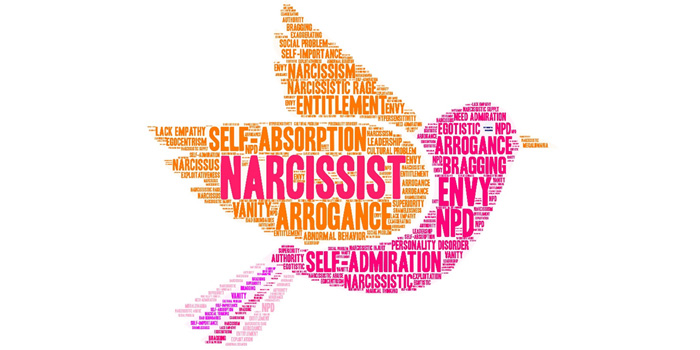Some caregivers have the experience of dealing with a family member who is a narcissist. How would you define a narcissist? Narcissists are self-involved to the degree that they ignore the needs of those around them, frequently disregarding others or their feelings. They rarely understand the effect that their behavior has on other people.
If you are caring for an individual who is a “net taker” in what should be a reasonably balanced relationship, you may be dealing with a narcissist. Such an individual can drain the very life out of you including your energy, resources, relationships with others, your feeling of self-worth and your happiness. It is important to realize and remember that you are not doomed to remain a slave to his or her demands as the caretaker to a narcissist. You deserve some sort of balance or the narcissist, believing the “deserve it”, will always take more than their share and have no remorse for the damage it does to others.
Ultimately, for the health of all concerned, it may be best to engage a third party in the relationship in the form of a professional homecare organization. They can generally assign a caretaker that will be emotionally separated and mentally prepared to avoid the manipulation such people demonstrate. It could create a much healthier relationship all around.
Sometimes it is difficult to see the situation from the inside of the relationship because it has developed over many years and patterns, habits and acceptances have become established. Below you will see two lists that describe the caretaker’s mental approach to the caretaking task; the first describes the self-image of caretakers who care for a narcissist; the second describes how such caretakers view their relationship with those for whom they care. By reviewing them, you may come to realize that the anxiety that you feel is not unlike the experience of others. The process may also allow you to recognize what is happening and react to it in a more rational, less emotional way. This alone may alleviate much of the anxiety.
Some characteristics of a caretaker who is more likely to be exploited by a narcissist.
Some people have personality traits that make them more likely to be victimized by a self-centered person for whom they are caring. Having these traits does not transfer the responsibility for the toxic relationship to you, but by recognizing them it may give you more strength to identify them and give you the strength to feel less abused. Use the list below to take a personal inventory.
- You are highly empathetic.
- Helping others makes you feel special.
- You are willing to redirect your anxious feelings into activity.
- You are inclined to be a savior for others.
- You are willing to ignore your own feelings or believe they are unimportant.
- To avoid an altercation, you are willing to placate to avoid it.
- When you are devalued, you believe you can handle it.
- When you are abused by a narcissist, you tend to forgive.
- You are strong and feel immune to contempt and betrayal.
- You are not strong and avoid confrontation.
- The happiness of the person in your care is your responsibility.
- You dismiss or devalue your own needs.
- You believe you have the power to resolve the problems of others.
- The narcissist’s problems are caused by others.
- You accept narcissism as “normal”.
- You feel you are responsible for the narcissist’s basic survival.
What some caretakers believe about the relationship with the narcissistic people for whom they are caretaking.
- If I try harder, things will get better between us.
- They are more fragile than me and need more latitude.
- They would not be able to function without my help.
- They will respond in kind if I work hard enough to prove my love.
- Given enough time, they will come around and learn to compromise.
- They really love me but don’t know how to show it.
- I understand them, and others probably would not.
- They are suffering, and I can make them well.
- In the end, I know they really care about me.
- They just need time and my patience to come around.
Caregiving can bring great satisfaction and enhance the caregiver’s quality of life as well, of course, in the quality of life for those for whom they care. It is critical, however, that the give/take is in a healthy balance. Caregiving can affect the caregiver’s life in many ways that include his or her ability to maintain social relationships, physical wellbeing, and mental health. In a recent survey, family caregivers reported that 18 percent of the time they experienced 14 or more days where they were physically unhealthy in the previous 30 days. In the same study, 15 percent felt they were mentally unhealthy in 14 or more days in the previous 30. For this study mental health includes stress, depression, and problems with emotions.
If this is normative data, imagine the physical and mental well-being of caregivers who must deal with the challenges of a narcissistic patient. Taking care of oneself by restructuring the relationship or off-loading some of the responsibility is critical to the health of the caregiver.

